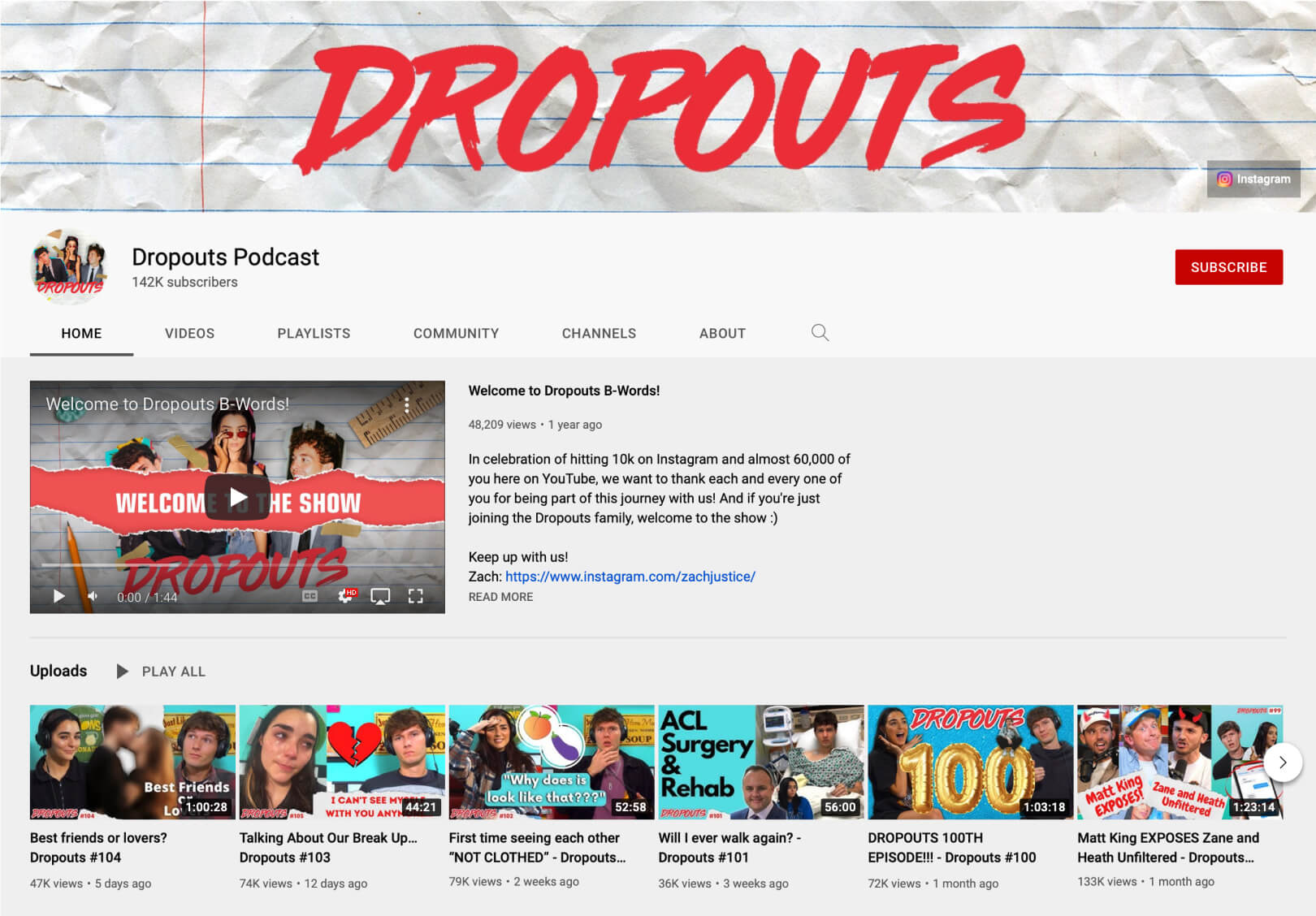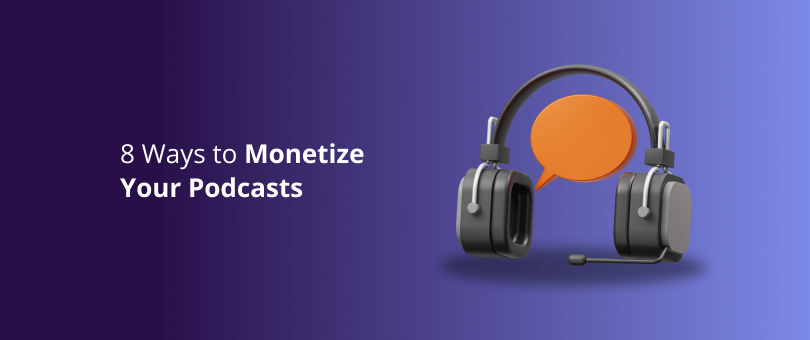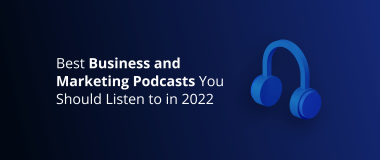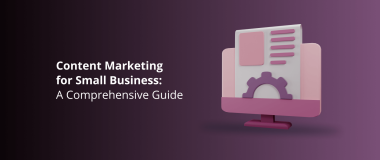If you are running a podcast show or planning to launch one any time soon, you need to consider the available podcast monetization options.
Podcasts are great and people can’t seem to get enough of them. In fact, in the last ten years, the number of podcast listeners globally has been steadily growing. And why wouldn’t it?
The audio format makes the content convenient and easy to consume. Furthermore, it’s more personal than blog posts and less demanding than videos.
However, while podcasts are a piece of cake for the listener, they are quite a lot of time and effort for the author.
Luckily, there is more than one way to generate revenue from your audio content.
In this article, we list the top 8 ways for podcast monetization and provide tips and insights on how to best do it.
Read on and take notes!
1. Ads
Advertising is one of the primary ways of podcast monetization. However, it depends on where you are publishing your content. Is it accessible to you and the listeners you have? Regardless, the more popular your show is, the more ad revenue you can count on.
Furthermore, there are advertising networks you can join that make it easy to find sponsors. This way, you don’t have to do the work yourself.
Some of the more popular such platforms are AdvertiseCast, Midroll, Authentic, and Podcorn.

These networks connect you with viable advertisers. You receive access to them in exchange for a commission for every ad that appears on your show. The tax is usually between 20 and 50% of the ad’s value. However, this may vary so make sure to double-check it before signing in.
Based on the radio-centric CPM model, the sponsors pay for every 1000 impressions. In addition, the price depends on where the ad is (pre-roll, mid-roll, or post-roll) and its duration (15, 30, or 60 seconds).
Also, some of the platforms offer pre-generated ads. On others, you have control and can personalize and adjust the clips to better match your content.
2. Sponsorship
Sponsorship is pretty much the same as ads but with a more hands-on approach.
You can contact sponsors yourself. Alternatively, when your show becomes popular enough, they can approach you with a collaboration offer.
With this type of podcast monetization, you can negotiate the deal and reach a price that suits both sides. This way, you avoid paying a commission to a third party.
Furthermore, it’s not required to have a specific number of listeners. What this means is that even if you are just starting out, a sponsor can support your content production efforts.
Similar to ads, the spots can be positioned pre-roll, mid-roll, or post-roll and can vary in length.
However, you can decide to fully integrate the promotional part into your content. This is true as you have full control over the content of the clips here, and these are usually featured in a limited number of episodes, Just like product placement on TV.

For example, you can start with the classic “This episode is brought to you by…” pre-roll, but mid-roll you can say a few good words about the sponsor’s product in a more natural way. If you choose sponsors that are relevant to the episode’s topic and the interests of your audience this shouldn’t be difficult.
Still, make sure that it doesn’t sound weird and too salesy as it may have the opposite effect.
3. Affiliate Marketing
Affiliate marketing is another great way for podcast monetization.
Similar to sponsorship deals, here you can also research products to feature in your shows or can be approached by companies that would like you to recommend their products and services.
The difference is that while sponsorship involves a flat rate of immediate payment, affiliate marketing can deliver small but steady revenue over a long period of time.
Here’s how it works.
In your episode, you mention and recommend the product of your affiliate partner and tell your listeners where to find the affiliate link (usually in the episode’s description).
In addition, for transparency and better clarity, you can further explain that clicking on this link will provide your followers with some sort of discount or additional value, and you with a referral fee (this can be flat or a percentage of the transaction).
To make sure that affiliate marketing delivers results and doesn’t bother your audience, you need to always recommend products and services that you’ve personally tested and approve of. Of course, they should be beneficial and relevant to your audience as well.
This will ensure that you generate a lot of clicks, build affiliate revenue, and – most importantly – that you don’t disappoint your listeners.
4. Donations

Donations are probably the top podcast monetization option for independent enthusiasts.
However, the reason why they are so far down the list is that many people feel uncomfortable asking for donations.
It’s true, it may feel like begging for charity. But that’s if you look at it the wrong way. In fact, what you are doing is asking people to support you so that you can continue delivering the type of content that they enjoy.
Producing a high-quality podcast show episode takes time, effort, expertise, and creativity. On top of that, you have hosting and equipment costs, and other potential expenses.
We know this, you know it, but your listeners may not, unless you tell them. Just be real and don’t feel awkward about it.
You will be surprised how many people are willing to pitch in to keep you on air.
Donations can be facilitated through a platform like Patreon (fees apply), a service like PayPal or Stripe, or even a GoFundMe campaign.
5. Premium Content
To level up your podcasting game, you can consider occasionally or regularly producing special content that your audience needs to pay to access.
Depending on your industry and niche, this type of added value can vary. Some options to consider include:
- Ad-free content
- Exclusive interviews
- Uncut versions of interviews
- Video recordings of your sessions
- Behind-the-scenes content
- Early access to specials
- Access to live streaming episodes
However, when considering this podcast monetization, make sure that what you put behind the paywall doesn’t depreciate the rest of your content.
This means that your regular episode should remain engaging, entertaining, and informative and still allow you to attract new listeners and retain your current followers.
Otherwise, you risk losing your loyal audience.
6. Selling Merchandise
If you are already popular or have a fast-growing audience of loyal listeners, you can consider launching your own line of merchandise.
This can include t-shirts, mugs, baseball hats, pins, keychains, or whatever else you see fit. However, if you are not certain where to start, you don’t need to go big – just t-shirts will be fine.
The simplest way to approach this type of podcast monetization is to create merchandise with your logo, name, slogan, or a catchphrase that your listeners enjoy.

However, if you are willing to go the extra mile, you can consider hiring a professional to create unique designs that capture the essence of your show.
Why not even launch a contest for fan art where the winning design goes on your merch and gains a percentage of the sales.
The great thing about this type of monetization is that you can not only profit from it, but it can help you raise awareness for your show, boost your audience’s sense of belonging, and strengthen your connection.
To reduce the risk and ensure the ROI of this approach, consider using a print-on-demand service. This way you will also not need to figure out where to store the ready produce as items will be created only when ordered.
7. Repurposing Content
Since you are working hard on creating valuable content in your episodes, why not repurpose it?
For example, you can organize the information from related episodes into eBooks and sell them on your website, as well as on platforms such as Amazon.
Or you can create online courses and sell them on Udemy.
The point is that you already have done the larger part of the work, and with a little further effort, you can create a whole new customer experience, build a presence on new channels, and boost your revenue.
Furthermore, as a podcast host, you have an audience that can vouch for your expertise and credibility, support your promotional efforts, and is more likely to purchase your content.
8. Re-Publish on YouTube

Conquering other platforms is beneficial for broadening your reach and attracting new audiences.
However, on top of that, YouTube, as a platform, offers lucrative monetization opportunities that are quite easy to implement – all you need to do is enable the necessary features in your account.
The best thing about it, though, is that if you don’t feel like it, you don’t even need to put in the extra effort to make your podcast episodes into videos. All you have to do is choose a fitting placeholder image and attach the audio file.
Still, if you are feeling adventurous, you can make a montage of different images, feature video recordings from your sessions, and why not even some animations.
The more time you put into making your videos engaging, the better ad revenue they are to generate.
Another useful tip is to consider cutting your episodes into short, bite-sized segments with catchy headlines, that people are more likely to watch.
All in all, however far you decide to go with this approach, it’s a feasible monetization option to consider.
Bottom Line
Not all podcast monetization techniques are made equal. Some deliver immediate cash and provide an instant boost to your bottom line, while others drip small sums over long periods of time.
Of course, depending on how popular your show is, it may take a while before you start making enough money to quit your full-time job.
However, by choosing and combining the monetization approaches that best fit your show, you can ensure that your podcast is not just for fun, but a business endeavor that pays off in significant revenue.




